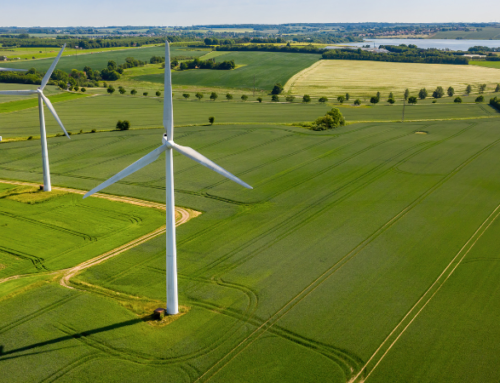So you’re thinking about becoming an energy broker? Don’t know where to start? Do not worry! As one of the nation’s leading energy brokerage firms with a world-class energy broker platform, we’ve seen it all! We know exactly the right steps you need to take to set yourself up for success in the retail energy industry. In order to help our new and potential sales partners, we put together the ultimate guide for energy broker beginners.
First Things First: Getting Your Energy Career Off On The Right Foot
Selling deregulated energy can be challenging. Since every single business, home, and apartment located in a deregulated state can be your customer, it’s very easy to get overwhelmed and not know where to begin. This energy broker guide outlines common terminology, industry basics, and sales tips for becoming the best energy broker you can.
Energy Broker Basics
Use the following resources to get familiar with the energy broker landscape, the different types of energy brokers, how energy brokers differ from other industry participants, and where you fit into the equation.
- Everything You Need To Know About Energy Brokers: An overview of the energy broker industry, how energy brokers operate, and what it takes to succeed as a retail energy broker.
- The Different Types Of Energy Brokers: Learn about the different types of energy brokers from commercial and industrial to residential brokers.
- Commercial Energy Broker Job Opportunities: Explore the various job opportunities that exist in the energy broker sector.
- Energy Brokers vs. Energy Traders: Discover the differences between energy traders who buy and sell energy in the wholesale market and retail energy brokers.
- How To Become An Energy Broker: A guide for the specific steps to take to start as an energy broker.
- Advancing As An Energy Broker: Tips for advancing your energy broker career and beating the competition.
- The Energy Broker Industry: An overview of the energy broker industry, market trends, and things to look out for when pursuing your career.
- The Challenges Of Becoming An Energy Broker: Some of the more recent hurdles of breaking into the retail energy broker sector.
- The Ins And Outs Of Being An Electricity Broker: An insider’s perspective of being an electricity broker.
- How To Make $100,000 Per Year Selling Energy: A step-by-step guide on making a six figure income selling energy.
- How Your Energy Brokerage Firm Can Make Or Break Your Career: Learn how to select the right energy brokerage firm to align with and understand the warning signs of a bad brokerage.
- All About Diversegy’s Energy Broker Platform: A deep dive into Diversegy’s energy broker technology platform that is enhancing the careers of energy brokers across the United States.
- Using Energy Broker Software To Grow: How modern energy brokers are utilizing technology and software to streamline operations and grow their businesses.
Energy Terminology Basics
Next, it’s important to understand the various energy industry terms that you might use on a daily basis in your career. Energy terminology can seem complicated at first, but once you understand the concepts, you will be talking like a pro! Here’s what you need to know:
- Electric Capacity: Understand what electric capacity charges are, how they are calculated, and what they mean for your commercial energy customers.
- Electric Transmission: Gain an understanding of the make-up of an electric rate and how electric transmission charges play a role in energy costs.
- kW vs. kWh: One of the most important aspects to understand when selling electricity is the difference between kilowatts and kilowatt hours. Learn what you need to know here.
- Electric Load Factor: Finally understand the complex topic of electric load factor, how to calculate it for your customers, and how load factor ultimately plays a role in your profit margins and customer rates.
Energy Deregulation Basics
It’s also critical to comprehend the history of energy deregulation, how deregulated energy markets differ from regulated markets, and the nuances of each deregulated state. Here’s what you need to know about energy deregulation and energy markets:
- About Retail Energy Markets: Learn about the different players involved in retail energy markets and how they operate.
- About Wholesale Energy Markets: Discover the differences between retail and wholesale markets, and learn about how wholesale energy markets drive commodity pricing.
- The Deregulated Energy States: A complete list of all deregulated energy states including a map of energy deregulation.
- A History Of Energy Deregulation: A full timeline of the history of energy deregulation and the laws passed that brought it to fruition.
- Pros And Cons Of Energy Deregulation: Discover the positive and negatives arguments for energy deregulation and learn about its future in the U.S.
- Regulated vs. Deregulated Energy Markets: Gain an understanding of the differences between regulated utilities and deregulated energy markets.
- Residential vs. Commercial Energy Markets: The difference between residential and commercial energy customers and their markets.
- Retail Energy Suppliers: An overview of retail energy suppliers and their roles in the deregulated energy markets.
- Tips For Selling Deregulated Energy: Sales tips from the experts for selling energy in deregulated states.
- Top 10 Energy Companies In The U.S.: A complete list of the top ten energy companies in the United States based on revenue and employee size.
- All About Energy Brokerage Firms: Learn about the differences between energy brokers and brokerage firms, and how brokerage firms can help enhance your energy sales career.
Energy Licensing & Regulations
The deregulated energy markets, although deregulated, still have much oversight and regulation. In fact, in most states, energy brokers are required to become licensed and even post financial bonding in order to be allowed to operate. Retail energy suppliers go through a more scrutinized process of becoming licensed and have to prove additional financial strength. Here’s what you need to know about energy licensing and regulation:
- Energy Broker License Requirements: The specific licensing requirements for energy brokers by deregulated state.
- Energy Broker Regulations: Learn about other industry regulations that are placed on energy brokerage firms.
Energy Broker Skills
After you get a good feel for the foundational principles of the industry, it’s time to put your knowledge to the test. Here are some of the operational and sales skills required in order to enjoy a successful career selling energy.
Energy Contracts
Understanding contract language, nuanced clauses, and legal terminology with give you a leg up on competitors
- Energy Contract Language 101: Learn about the specifics of different energy contract clauses and what they mean for your customers.
- Retail Energy Contracts: An overview of retail energy supplier contracts and how they fit into the energy industry.
- Energy Contract Renewals: Everything you need to know about energy contract start dates, end dates, and how the contract renewal process works.
- Energy Contract Bandwidth Clauses: Discover what energy bandwidth is, how is applies to your customers, and where to find it in a retail energy supply contract.
Energy Products
You need to be an expert at the different types of energy supply products and contract structures available in the market. Not all customers are the same and you can bring true value to your customers by matching them with the right type of energy plan.
- Different Types Of Energy Supply Products: Learn about fixed energy rates, market-based rates, and hybrid energy supply products.
- Future-Dated Energy Contracts: See how energy futures markets play a role in selling retail energy.
- Energy Index Rates: Understand how energy index rates work and why a customer might want to take advantage of market-based index pricing.
- Matrix Rates vs. Custom Pricing: Gain a thorough understanding of daily supplier matrix pricing vs. custom quotes and when to use each for your customers.
- Blend & Extend Energy Contracts: Learn how you can negotiate lower rates for your customers even when they are in the midst of a fixed-rate contract.
Energy Broker Sales
Finally, nothing happens without a customer and a sale. In order to be successful in this career, you must master the art of selling. And, as an energy broker your sales job is more than just selling a one-time product. You must act as a true advisor and consultant in order to build long-term, lasting relationships with your customers.
- How To Sell Energy Contracts: Learn proven techniques for acquiring new customers and selling more contracts.
- Using Energy Market Knowledge And Data To Sell: Gain an understanding of how to interpret energy markets and utilize information to lend advice to customers.
- Managing Sales Lead Data: Tips for organizing energy sales leads so nothing falls through the cracks.
- Developing Energy Sales Leads: Proven tips for generating more potential energy customer prospects.
- Energy Price Quotes: How to interpret and present energy sales quotes to customers.
- Submitting A Price Request: A guide on properly submitting a custom energy price request to your brokerage firm.
- Generating A Prospect List: More tips for identifying and qualifying energy sales prospects.
- How To Cold Call: Learn proven methods on how to cold prospect customers on the phone, over email, and in person.
- Developing Relationships With Customers: Use these techniques to enhance relationships with your customers so you can build long-term income.
- Follow Up Techniques: Proven energy sales follow up strategies that work.
- Getting A Bill Copy From A Prospect: The correct way to ask for and collect copies of energy bills from prospects so you can offer price quotes.
- Energy Broker Marketing Materials: Common energy broker marketing tools that will set you apart from your competition.
- Energy Broker Tools: Use these tools in your day-to-day life as an energy broker to make your job easier.
- Letters Of Authorization And Exclusivity: Understand the importance of getting authorization from your prospects, and how you can use exclusivity letters to lock in new clients.
Managing Energy Customer Problems
In addition to being an excellent salesperson, one must also be keen on customer service and handling issues as they arise. Although customer service problems are few and far between, it is important to gain an understanding of the most common customer issues and know how to deal with them.
- Utility Account Drops: What utility account drops are and how you need to react to save an energy contract.
- Contract Early Termination Fees: The specifics about early termination penalties and how to advise your customers to avoid them.
- Late Payment Fees: What you need to know about late fees on utility bills.
- Energy Pass Through Charges: Gain an understanding of energy pass-through charges, why they happen, and how eliminate pass-through language from energy contracts.
- Common Problems With Energy Suppliers: The most common problems your customers will face with retail energy suppliers and how to handle them.
- Energy Scams And Fraud: Common energy scams, how to recognize them, and help your customers from being victims of energy fraud.
Keeping Up With Energy Industry Trends
One of the most exciting things about being an energy broker is that you work in an ever-changing environment. The energy industry is evolving with new technologies, regulations, and political impacts. To be successful, it’s critical to understand the trends and to stay on top of the market.
- Energy Deregulation In 2023: The latest energy deregulation news and happenings in deregulated energy markets.
- 2023 Energy Price Trends: Energy market trends for 2023, what’s forcing prices to move, and what to expect for the rest of the year.
- 2022-2023 European Energy Market Volatility: Understanding what caused volatility in the European energy markets and how that volatility is affecting U.S. prices.
- EU Gas Price Cap: Learn about Europe’s reaction to rising energy prices and what the price cap means for U.S. energy customers.
Ready To Launch Your Energy Broker Career?
It has never been a better time to get started as an energy broker. With new deregulated markets on the horizon, energy in the forefront of global news, and evolving renewable technologies, you can have an exciting career. Contact our team today to learn about how we have helped our energy broker partners launch their careers and set themselves up for success.



